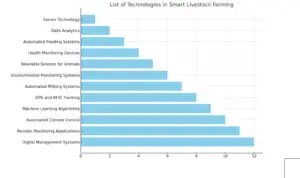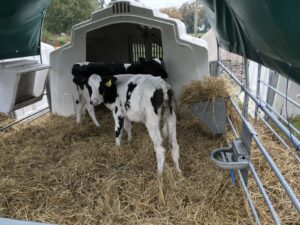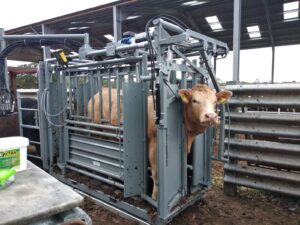You love nature; you love the countryside; you want to be more self-sufficient, and most of all, you want to be environmentally conscious and make sure the food you eat is produced sustainably for the environment.
Do you want to start a hobby farm but need to know where to start? You know you have to consider so many aspects, and you are looking for clarification?
What Is A Hobby Farm?
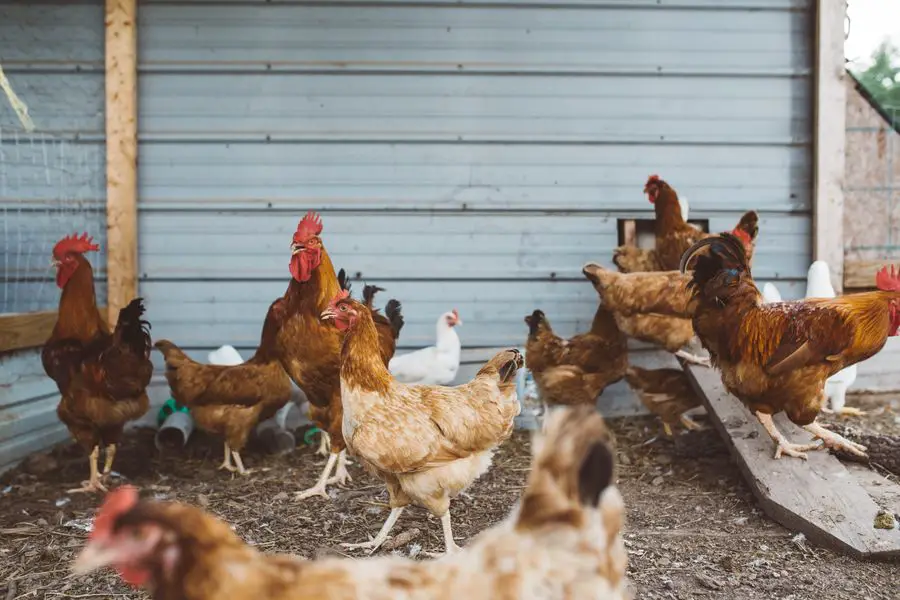
Anyone can be a hobby farmer, whether you want to raise animals like chickens, pigs, or other small animals or look after your garden and produce your own vegetables and fruits.
However, it is essential to understand a small-scale hobby Farm is not for profit but can help you to become self-sufficient. Most of the already established hobby farms are run by people with passions for nature, the countryside, and sustainability, but they are not looking to make money with their hobby.
If you want to become a professional farmer, big or small, you will need a more in-depth knowledge of the farming industry in your area.
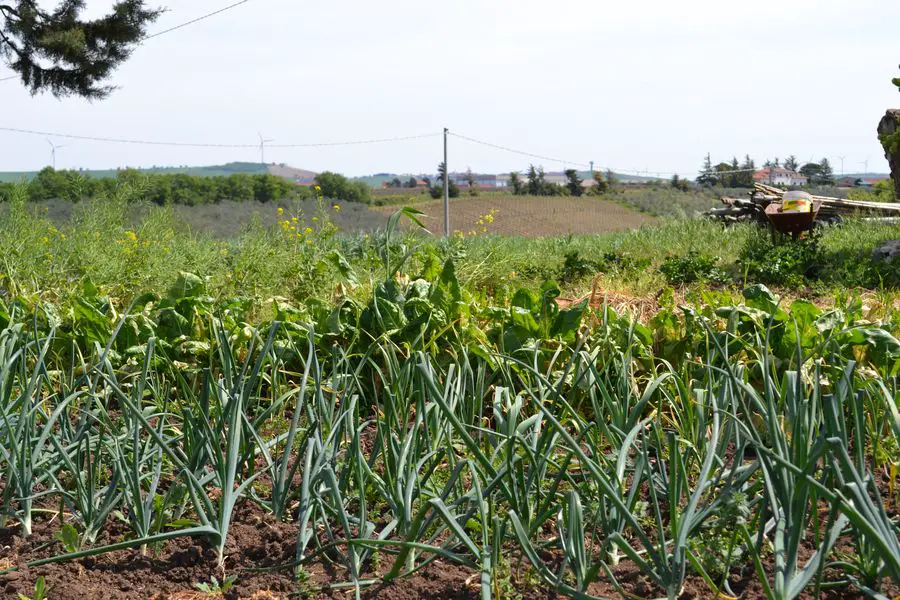
How Do I Budget My Farm?
Budgeting is essential if you want to start a sustainable hobby Farm. However, budgeting is only straightforward if you understand what you need for rearing animals and growing your crops. The best thing you can do before you start budgeting is to educate yourself. Read books, follow courses, talk to your neighbor, and ask for professional help.

Creating a budgeting system for a hobby farm can help you manage your finances and ensure that you are making the most of your resources.
What Do I Need To know Before Spending Money To Start My Farm?
Do you already have a piece of land, a backyard, or a garden?
If the answer is no, you need to budget the rental cost of a piece of land or finance the purchase of a small farm. The cost of renting or buying a farm varies significantly according to location. Remember to check the local legislation for Hobby farming and to keep livestock. Legislations can be restrictive in some areas, and you don’t want to be caught in breach of the law.
The area’s weather and climate are other essential variables that will affect what kind of animals you will rear and the crop or vegetables you will be growing.
The first step you want to take to start your hobby Farm is researching the different types of animals you can have on your farm, what kind of management they require, welfare needs, and possible animal health implications.
You do not want to rear animals but only want to grow vegetables or other crops? The research is precisely for that subject. There are different ways to learn how to rear animals or grow vegetables.
Best Animals To keep On Your Hobby Farm
Now, let’s dive more into detail about the animals and vegetables you can have on your farm. These guidelines have little ambition to be exhaustive, but they will give you a good idea of the animal needs and crop culture considerations you must make.
1. Chickens
The most common animals you can have on your farms are chickens. There are different breeds, and they are kept for various purposes. They can be kept for laying eggs, or they can be kept for meat production.
The chicken coop is the first investment you will make when keeping chickens. Like every other farm animal, these animals have specific welfare and health requirements. They do not need a big outside area, but they like wandering around and generally only travel a little far from the shed. Chickens can express aggressive behaviors if they don’t have enough space inside, especially if they want to lay eggs. Chicken coop, and typically any animal shelter for farm animals, must be very easy to clean. Chickens can suffer heat stress in hot weather, so their sheltered areas and sheds must be well-ventilated, and it must be ideal to avoid building up humidity and drain properly.
Feeding space, food, and water troughs are also critical, and they will require careful consideration and probably some investment.
Chicken feeds can be expensive, but chickens can eat discarded vegetables and fruits, or you can start producing crops for feeding chickens on your land.
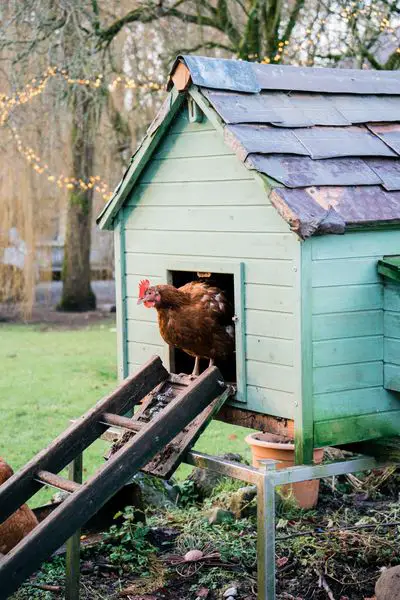
Raising your own chickens for eggs and meat can be a sustainable way to feed your family. You can also reduce your carbon footprint by producing your own food locally and reducing transportation costs.
2. Sheep
Another widespread farm animal in small farms is sheep. Sheep are kept for production purposes, like meat or milk, or they can be kept as pets. They also have specific requirements.
They like to graze in hot weather, so you will probably need a more extensive farm with grazing pastures if you want to keep sheep.
In the winter, you must ensure a good shelter with plenty of space and, once again, look after feeding and water. If you decide to breed from your sheep, discussing the best health plan with your veterinarian is essential. The diet requirements of pregnant sheep are different from those of non-pregnant sheep.
Once again, the shed for the sheep needs to be well-ventilated to be easy to clean, allow urine to drain, and avoid humidity from building up.
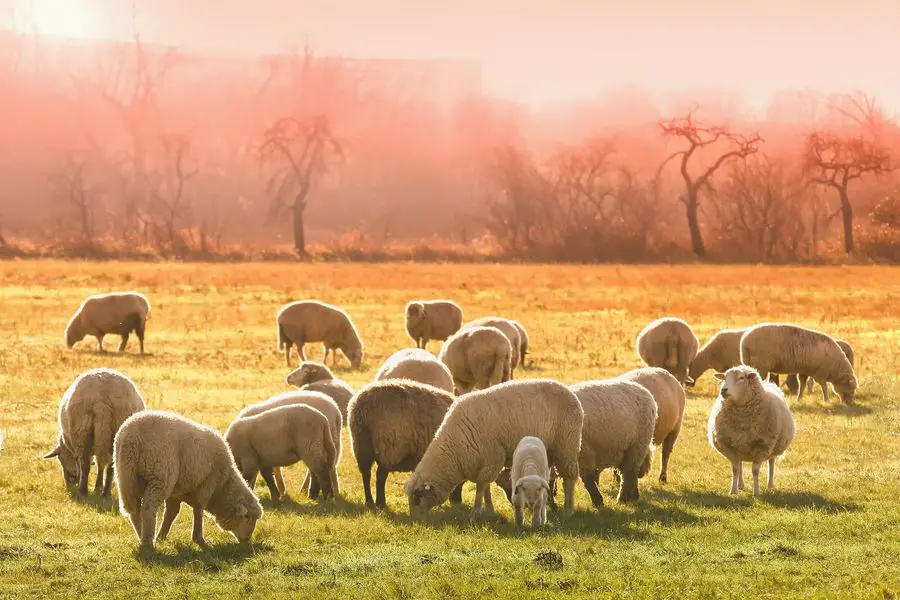
Sheep need more grazing space and different energy requirements if they are pregnant. – Photo by Analogicus
3. Pigs
If you decide you want to rear pigs, you will need to ensure to provide space and, especially in hot weather, pigs cannot cool down very quickly, and they need a water bath to ensure that their body temperature is kept within the normal range.
Pigs are very clean animals, so you must provide clean straws for their shelter and ensure their accommodations are always clean. However, like chickens, they don’t need a lot of space. Remember, if you have more than one pig, they can express aggressive behavior, especially under stress (hunger, hot weather, parasites, or other health issues).
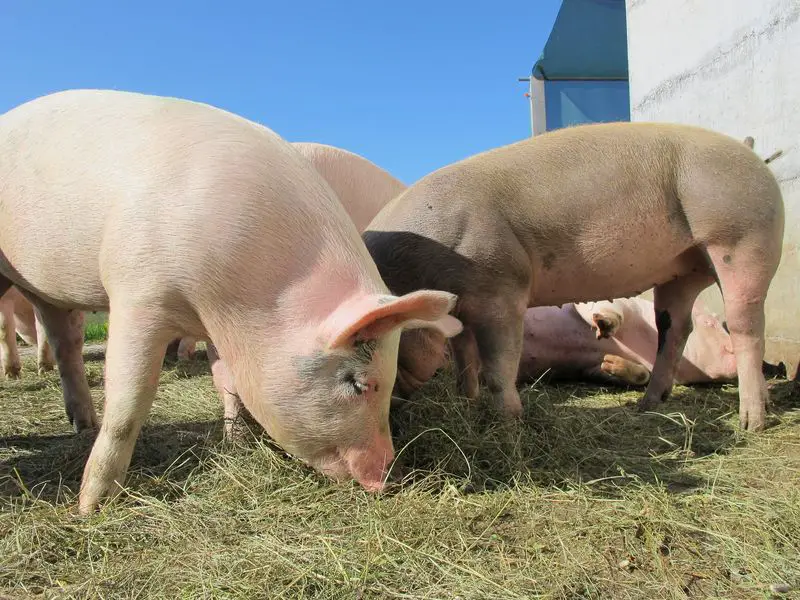
Pigs can be a great addition to a hobby farm, but it’s important to understand their care requirements and potential challenges. – Photo by Marion Streiff
4. Other Animals
You can keep these three animals on your farm, but you can also consider expanding your livestock options to include goats, ducks, or turkeys. Additionally, if your farm is spacious, you may consider keeping other easy-to-keep cattle breeds, such as Highland, Hereford, or Red Poll. These breeds are known for their adaptability, manageability, and relatively low maintenance requirements.
However, it’s important to note that cattle will require a proper handling system on your farm regardless of your breed. This system is essential for vaccinations, hoof trimming, and general management procedures. A well-designed handling system will ensure the safety of both the animals and the people working with them.
When considering adding any of these animals to your farm, it’s crucial to factor in their welfare and health, including providing suitable shelter, a balanced diet, access to clean water, and considering the impact of weather and temperature on their well-being. By understanding their needs and implementing appropriate management practices, you can create an environment that promotes optimal health and productivity.
Maintaining a good relationship with a veterinarian is highly beneficial when raising cattle or other animals. They can provide valuable guidance on breeding programs, nutrition, disease prevention, and overall management. Regular veterinary check-ups and consultations will contribute to the long-term success of your animals’ endeavors and ensure the well-being of your animals.
5. Bee-keeping
Another exciting hobby Farm activity can be bee-keeping. Keeping bees is highly technical and challenging, so you have to do a lot to study, but it could be an excellent alternative to other conventional farm animals.

Overall, beekeeping can be a rewarding hobby for a small farm or homestead, providing benefits such as pollination, honey production, and a connection to nature. However, it’s important to educate yourself and be prepared for the responsibilities of beekeeping before starting. – Photo by Bianca Ackermann
What About Vegetables And Fruits?
Keeping a garden and growing your food or the food for your animals is one of the most satisfying hobbies in life.
The most important considerations you want to make if you decide to grow crops are the climate in your area, water, soil quality, and what type of pests are present. Some vegetables grow better in hot weather; others thrive in colder temperatures. You will need fertilizers, water, and tools for your land.
There are many crops you could grow on your small farm. There are low-maintenance cultivations like garlic, onions, and potatoes to more challenging cultures like carrots, zucchini, peas, legumes, and tomatoes. You could think of growing crops like wheat, barley, corn, or sugarbeet for your animals. In the winter, broccoli, cauliflower, and fennels are the best choices.
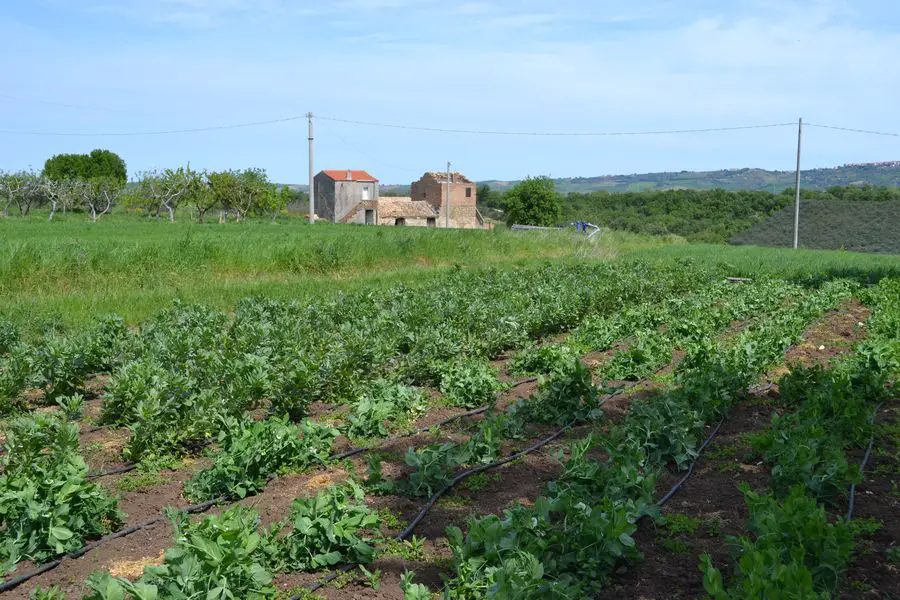
Research crop vegetables and fruits according to your area’s weather and temperatures.
Summary Of Your Main Expenses For Your Budget
So, once you know what type of farm you want to start and your management system, you can better understand the budget you will need.
- Rent or buy the Land
- Animals purchase
- Feeds – However, some of the food you need may be produced from your garden
- Sheds, pens, or any other accommodations
- Fencing
- Water and feed troughs
- Tools – These can vary according to your farm’s size: tractors, tilling machinery, and other machines for pesticides or fertilizers.
- Seeds
- Fertilizers
- Bedding (straw or other alternatives)
- Veterinary advice and services
How Can You Be Environmentally Friendly?
In reality, hobby farmers are already environmentally conscious. Your food is zero miles, which means that what you eat has not produced emissions from processing activities, packaging, and traveling.
Another essential consideration is that, as a small-scale farm, you will need less fertilizer, less tilling and pesticides, and little water usage.
But if you want to be even more environmentally sustainable, you can use techniques and implement systems to minimize the impact on soil health, of your small farm and .
Environmental Sustainable farming can be achieved through:
- Minimize the usage of pesticides
- Rotate your annual crops, for example, using two or three crops
- Look after the biodiversity of your farm. Growing different crops and cultures allow other insects to populate your farm.
- Minimize energy usage. You could invest some money in renewable energy, small wind turbine, or small solar system energy sources on a small farm.
- Minimize water usage. Use rainwater, minimize water spillages and use irrigation systems to optimize water usage.
- Produce your animal feeds and minimize the amount of feed you need to buy
- Proper manure management
Pros and Cons Of Running A Small Farm
A small hobby farm is better for the environment. Allows to eat fresher food and, if appropriately done, can also improve biodiversity.
It also has a significant psychological effect. Looking after a small farm can be very rewarding, relaxing, and fulfilling.
However, it also requires a lot of work; it is very labor-intensive and does not guarantee consistent quality and high crop yields. You have constantly looked after your animals, and you need to make sure you have a plan for your holidays because your chickens will still need fresh food and water. Animals need to be looked after every day; they need to be fed and ensured they always have clean water and fresh bedding.
Conclusion
However starting a hobby farm may seem daunting, but with a solid plan and determination, it is more than achievable.
From budgeting your operations and assessing your resources to considering the different needs of crops and animals, each step plays a critical role in ensuring the success of your hobby farm.
Remember, the goal of a hobby farm is self-sufficiency, environmental consciousness, and the pure joy derived from being closer to nature.
Hobby farming brings various benefits, such as fresher food, improved biodiversity, and significant psychological well-being. However, it comes with challenges, like intense labor, inconsistent crop yields, and continuous care for the animals. Hence, diving into this venture with a well-thought-out plan, armed with all the necessary knowledge and a passion for nature and sustainability, is essential.
This blog post serves as an introductory guide to starting your hobby farm. So, whether you’ve been dreaming about starting a hobby farm for years or the idea has just sprouted in your mind, we encourage you to take that first step. Begin your research, discuss with professionals, learn from others, and plan.
We also invite you to join the conversation in the comments section below. Share your thoughts, fears, and excitement about starting a hobby farm. And remember to share this blog post with your friends and family. You might inspire someone else to embark on the journey of hobby farming, contributing to a greener, more sustainable world.

